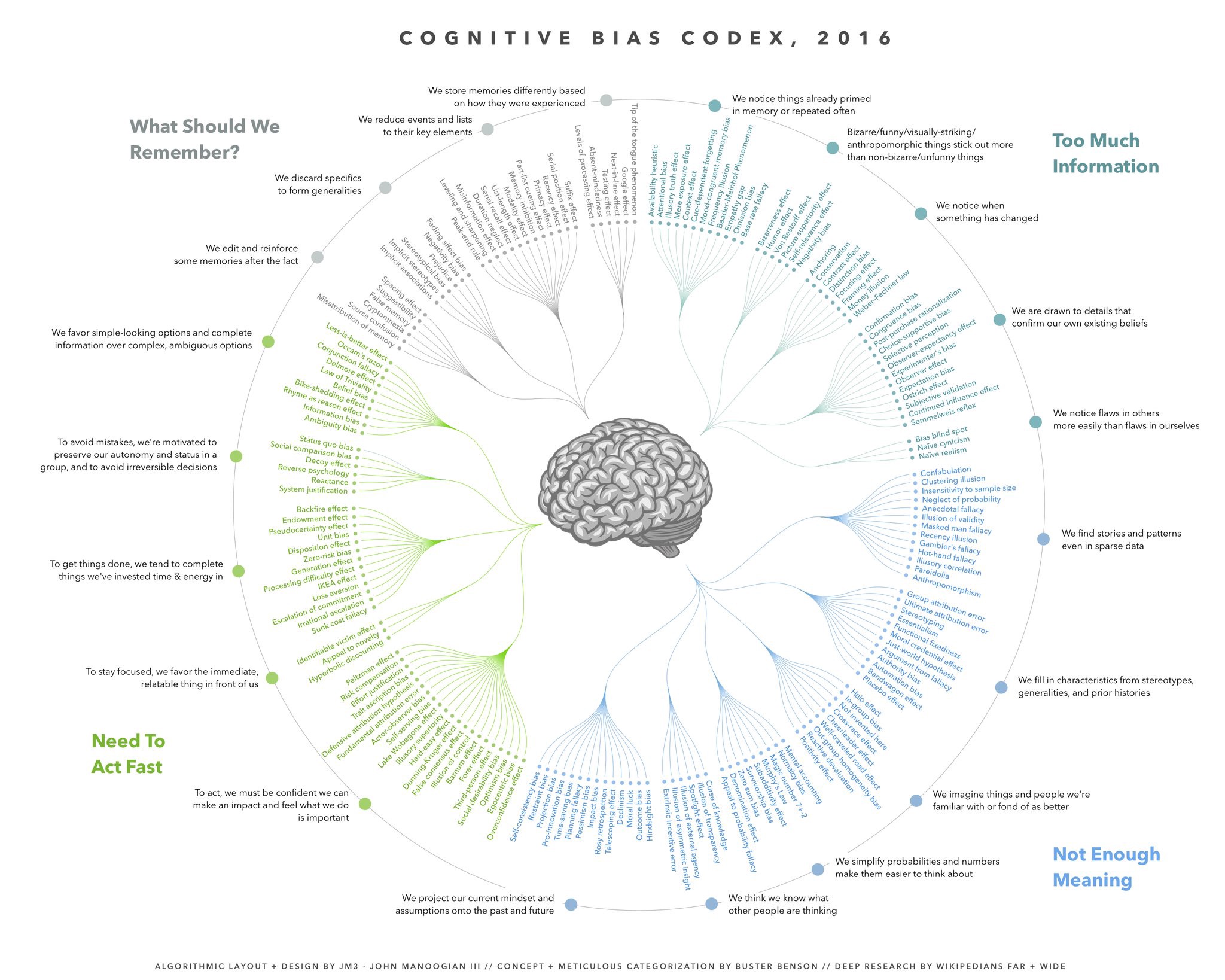How we Fool Ourselves with Cognitive Bias (False Signal in Noise)
I’ll just cut right to the chase here. Our brain fools us. Check out this 10-minute video.
We are creatures of habit, creatures that enjoy story, and creatures that prefer that we have meaning over being aimless. In that quest, we take in what’s in our environment, find relationships between what we see, and create a story about it. This is so powerful that some of the best memory experts use expertly-crafted story to remember all the infinite details of something.
But the memory may be lying to us. Specifically, through cognitive bias.
Cognitive bias is a failure in our thinking machinery – warping our distortion of what has happened or what will happen. Most biases are built for survival – to ensure that we can symbolize the information about our life experience in a way that ensures we are not in danger.
Here’s the TLDR version of the link at the bottom of the page (bold means pay attention! We’ll see these again, soon):
- We notice things that are already primed in memory or repeated often. This is the simple rule that our brains are more likely to notice things that are related to stuff that’s recently been loaded in memory.
- Bizarre/funny/visually-striking/anthropomorphic things stick out more than non-bizarre/unfunny things.
- We notice when something has changed.
- We are drawn to details that confirm our own existing beliefs.
- We notice flaws in others more easily than flaws in ourselves.
- We fill in characteristics from stereotypes, generalities, and prior histories whenever there are new specific instances or gaps in information.
- We imagine things and people we’re familiar with or fond of as better than things and people we aren’t familiar with or fond of.
- We simplify probabilities and numbers to make them easier to think about.
- We think we know what others are thinking.
- We project our current mindset and assumptions onto the past and future
- In order to act, we need to be confident in our ability to make an impact and to feel like what we do is important.
- In order to stay focused, we favor the immediate, relatable thing in front of us over the delayed and distant.
- In order to get anything done, we’re motivated to complete things that we’ve already invested time and energy in.
- In order to avoid mistakes, we’re motivated to preserve our autonomy and status in a group, and to avoid irreversible decisions.
- We favor options that appear simple or that have more complete information over more complex, ambiguous options.
- We edit and reinforce some memories after the fact.
- We discard specifics to form generalities.
- We reduce events and lists to their key elements.
- We store memories differently based on how they were experienced.
Read the in depth review here: https://betterhumans.pub/cognitive-bias-cheat-sheet-55a472476b18
